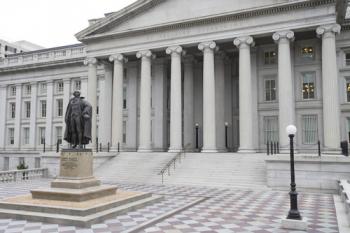An Overview of the 8th Amendment
 Eighth Amendment: Prohibits Excessive Bail and Cruel and Unusual Punishment
Eighth Amendment: Prohibits Excessive Bail and Cruel and Unusual Punishment
What is the Eighth Amendment?
Excessive bail shall not be required, no excessive fines imposed, nor cruel and unusual punishments inflicted.
The Eighth Amendment Defined:
The Eighth Amendment was attached to the Bill of Rights in 1791. The amendment serves as almost an exact replica to a provision within the English Bill of Rights of 1689.
The Eighth Amendment was inspired by the case in England of Titus Oates, who was tried by the court system for multiple acts of perjury, which led to the executions of many people whom Oates had wrongly accused of grave crimes. The subsequent punishment of Oates involved ordinary penalties which were collectively imposed in a brutal and excessive manner.
In England, the outlawing of cruel and unusual punishments effectively limited the discretion of judges and required the authoritative body to adhere to precedents.
The state of Virginia was the first to adopt the provision of the English Bill of Rights, for it was included in the Virginia Declaration of Rights of 1776.
The Eighth Amendment is a part of the Bill of Rights, which are the first 10 Amendments to the United States Constitution and the framework to elucidate upon the freedoms of the individual. The Bill of Rights were proposed and sent to the states by the first session of the First Congress. They were later ratified on December 15, 1791.
The first 10 Amendments to the United States Constitution were introduced by James Madison as a series of legislative articles and came into effect as Constitutional Amendments following the process of ratification by three-fourths of the States on December 15, 1791.
Stipulations of the Eighth Amendment:
The Eighth Amendment forbids forms of punishments entirely, while outlawing other forms of punishments that are excessive when related to the crime in question or compared to the competence of the aggressor.
The Supreme Court outlawed public dissecting, burning a perpetrator alive, drawing and quartering, or disemboweling regardless of crime. The Supreme Court also outlawed the execution of any individual under the age of 18 or any individual who is mentally handicapped.
The Supreme Court ruled that it was unconstitutional to fine an individual excessively based on their economic or financial standing. Additionally, the Supreme Court, through previous provisions instituted by the English Bill of Rights stated that excessive bail is not required; however, the Eighth Amendment also states that bail may be denied if the charges are grave and serious enough to terminate the option.
Court Cases tied into the 8th Amendment:
Wilkerson v. Utah ruled that death by firing squad is not considered cruel and unusual punishment.
Hammelin v. Michigan ruled that a life sentence without the opportunity of parole for possession of cocaine exceeded 672 grams is warranted.
Lockyer v. Andrade upheld the Court’s decision that a sentence of 50 years to life with the possibility of parole under California’s three strike law is permissible
State Timeline for Ratification of the Bill of Rights
New Jersey:November 20, 1789; rejected article II
Maryland:December 19, 1789; approved all
North Carolina:December 22, 1789; approved all
South Carolina: January 19, 1790; approved all
New Hampshire: January 25, 1790; rejected article II
Delaware: January 28, 1790; rejected article I
New York: February 27, 1790; rejected article II
Pennsylvania: March 10, 1790; rejected article II
Rhode Island: June 7, 1790; rejected article II
Vermont: November 3, 1791; approved all
Virginia: December 15, 1791; approved all
Georgia, Massachusetts and Connecticut did not ratify the first 10 Amendments until 1939
Related Topics
- John Dickinson
- Procedures Committees Overview
- The Commerce Clause Overview
- The Constitution Overview
- Animal Welfare Act Text
- Intolerable Acts Text
- An Overview of the 22nd Amendment
- An Overview of the 9th Amendment
- Quick History Overview
- Current Membership of the Supreme Court